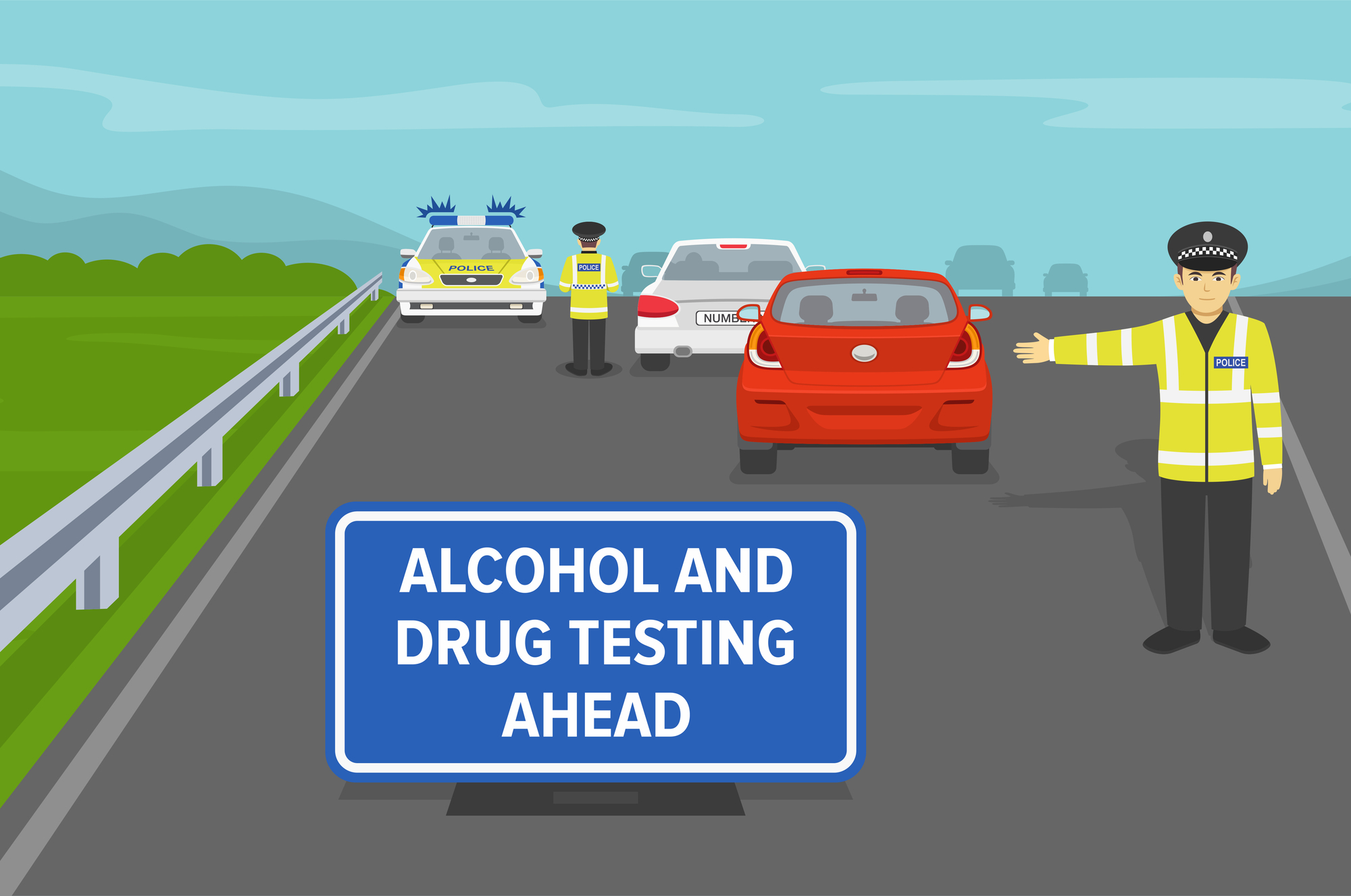Introduction
This blog post will discuss the consequences of a parent’s refusal of drug testing in child custody cases. Refusal of drug testing in child custody cases can have significant legal ramifications for parents that the Court asks to submit to these tests. The Court can order parents to submit to drug testing out of concern for the child’s best interest. Parents may refuse to comply for various reasons, as explained in this article.
The Purpose of Drug Testing in Child Custody Cases
Protecting the Child's Best Interest
In child custody cases, the court’s primary concern is the best interests of the child. Drug testing can be an important tool for making sure that the child is placed in a safe and stable environment. If one parent is suspected of substance abuse or the other parent makes accusations of substance above, the court may order drug testing. Testing will help the Court to determine the extent of the problem and make an informed decision about custody and visitation.
Establishing a Pattern of Behavior
Drug testing can also help to establish a pattern of behavior. For instance, the Court may require drug testing for a parent with a history of drug usage or drug-related charges. Drug testing can help to determine if the parent is still using drugs. The Court will use this information to make informed custody and visitation decisions. Also, drug test results will help to determine if additional measures, such as supervised visitation or substance abuse treatment, are necessary.
The Court does not want to be in a position of speculating about whether the parent is or is not misusing or abusing drugs. Therefore, if a parent has engaged in the habitual, frequent, or continual use of controlled substances or continual abuse of alcohol by a parent, the Court may order drug testing. However, under California law, the Court must order the least intrusive testing method for the use of controlled substances or alcohol.
Reasons for Refusing Drug Testing
Privacy Concerns
Some parents may refuse drug testing in child custody cases due to privacy concerns. They may feel that the request is invasive and infringes on their right to privacy. However, it is essential to remember that the primary concern in these cases is the welfare of the child, and courts may view a refusal to submit to drug testing as evidence of guilt or an unwillingness to prioritize the child’s best interests.
Fear of False Positives
One reason parents might say no to drug testing is the worry of getting a false positive. Even though drug tests are usually accurate, there’s a small chance they could be wrong. Some research in the National Library of Medicine found that false positive rates were around 14% for amphetamine/methamphetamine, 34% for opiates (not counting oxycodone), 25% for propoxyphene, and 100% for phencyclidine and MDMA immunoassays.
As a lawyer, I’ve seen a handful of clients who’ve had false positives, but it’s pretty rare. When it happens, the parent usually just asks for another test. It’s true that a false positive could bring some trouble for the parent, but it’s important to think about the possible problems of not taking a drug test at all.
Legal Consequences of Refusing Drug Testing
Loss of Custody Or Visitation Rights
One of the most significant consequences of refusing drug testing in child custody cases is the potential loss of custody or visitation rights. If a parent refuses to submit to drug testing, the court may view this refusal as evidence that the parent is not prioritizing the best interests of the child. As a result, the court may award custody to the other parent or limit the refusing parent’s visitation rights.
Court Ordered Drug Testing
A court might ask a parent to take a drug test if there are believable concerns. If the parent keeps refusing, they could be found in contempt of court, which might lead to fines or even jail time. But in my experience, I haven’t seen any parents face contempt of court for not taking a drug test. Instead, the court usually orders supervised visitation. Also, if a parent keeps refusing court-ordered drug tests, it might hurt their chances of getting custody or visitation rights later on — which is why it’s important to understand the consequences of a parent’s refusal for drug testing.
How to Handle a Request for Drug Testing
Consult With An Attorney
If you are asked to submit to drug testing in a child custody case, it is essential to consult with an experienced family law attorney. They can help you understand your rights and the potential consequences of refusing drug testing. An attorney can also provide guidance on the best course of action for your specific situation. Additionally, there are different methods of drug testing — some of which might violate your privacy. As stated above, the Court must choose the least intrusive method of testing.
Be Honest and Cooperative
Being honest and cooperative with the court and the other parent can go a long way in demonstrating that you are acting in the best interests of your child. Perhaps you have a legitimate reason for refusing drug testing, such as concerns about false positives or privacy. If that is the case, it is essential to communicate these concerns openly and work with your attorney about these concerns. Working with an attorney you might be able to find a solution that addresses both your concerns and the court’s need for information.
Consider Voluntary Drug Testing
In some cases, it may be in your best interest to voluntarily submit to drug testing, even if you are not legally required to do so. By doing this, you can demonstrate to the court that you are committed to your child’s welfare and that you have nothing to hide. This proactive approach can help to strengthen your case for custody or visitation rights. It is not unusual for a Judge to suggest that the parent submit to drug testing to prove to the other parent that he/she is not abusing drugs.
Closing Thoughts
Refusing drug testing in child custody cases can have serious consequences, including the loss of custody or visitation rights, court-ordered drug testing, or even being found in contempt of court. It is crucial for parents to understand the potential ramifications of refusing drug tests and to consult with an experienced family law attorney for guidance. By being honest, cooperative, and, in some cases, voluntarily submitting to drug testing, parents can demonstrate their commitment to their child’s welfare and improve their chances of obtaining a favorable outcome in their child custody case

Feel Free to Reach Out for Help
If you are in need of help with your child custody case, feel free to contact me at the following email address:
coach[at]allrisesolutions.com
You’ve waited long enough. Now is the time to get the help you need to get control of your case.
Esther C Moore
Share:
Related Posts

False Drug Accusations in Child Custody Cases
Overview When your co-parent files a motion claiming you’re using drugs—but it’s completely untrue—your world can feel like it’s crashing down. False drug accusations in custody cases are not just personally devastating; they threaten your relationship with your children and your reputation. Many parents facing these false allegations feel helpless and overwhelmed, unsure of how to defend themselves against claims

Credibility of Evidence in Child Custody Drug Testing
Critical Balance Between and Child Safety When a parent requests drug testing in a custody case, courts face a delicate balancing act. They must weigh the accused parent’s privacy rights against the paramount concern for child welfare. Understanding how courts evaluate the credibility of evidence presented in a drug testing motion can help both parents and attorneys navigate this complex

How to Financially Prepare For Divorce
How to Financially Prepare for Divorce Are you facing the possibility of divorce? The financial implications can be overwhelming, but proper planning makes all the difference. This comprehensive guide walks you through the essential financial preparation steps before divorce proceedings begin. Don’t wait until papers are filed to start protecting your financial future—the decisions you make now will impact your

Common Mistakes Parents Make During Child Custody Evaluations
Common Mistakes Parents Make During Child Custody Evaluations Navigating a child custody evaluation can feel like walking through a minefield. One wrong step, and your chances of securing favorable custody arrangements might explode in your face. What makes these evaluations particularly challenging is that most parents have never experienced one before—yet the outcome could dramatically impact your relationship with your

Can I Get a Move-Away Order in California?
Can I Get A Move-Away Order In California? When we talk about family, we know that sometimes the hardest decisions come from a place of deep love and concern. Relocating with your child after a divorce or custody agreement ranks among the most challenging journeys a parent can face. I recently encountered a story on AVVO that touched my heart






